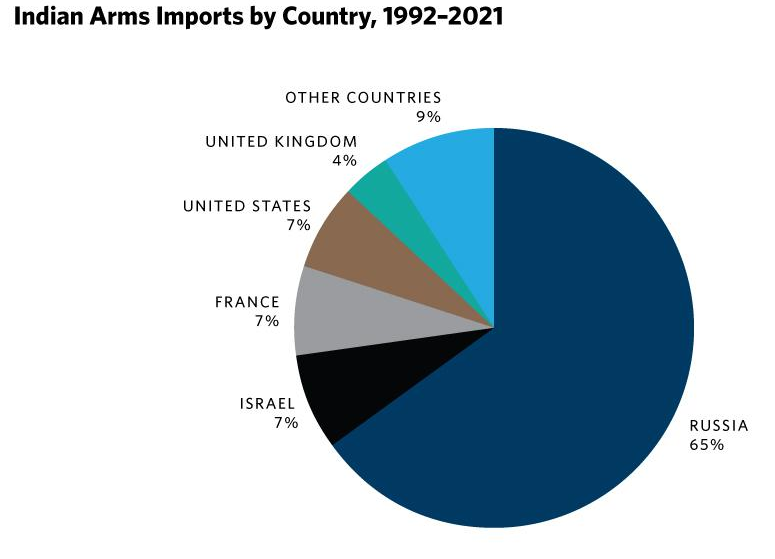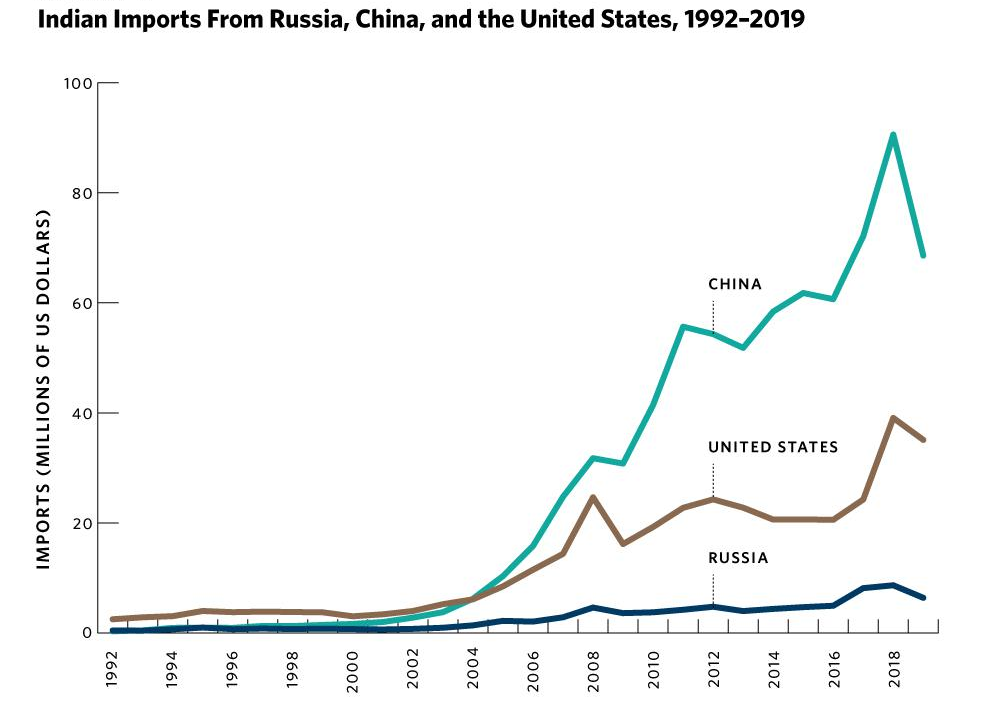International Relations
India-Russia Ties: The Art of Diplomacy
This editorial is based on “ Net Zero Sum” which was published in The Indian Express on 29/12/2023. The article discusses the visit of India's foreign minister, Jaishankar, to Moscow which holds significant importance in strengthening India-Russia relations.
For Prelims: The Indo-Soviet Friendship Treaty of 1971, Declaration on the India-Russia Strategic Partnership, Special and Privileged Strategic Partnership, Kudankulam Nuclear Power Plant (KKNPP), Agreement on the Programme for Military-Technical Cooperation, MiG-21, Su-30, Ukraine Crisis
For Mains: Strategic Significance of India- Russia Relations, Key Issues and Way Forward.
The recent Moscow visit by India's Foreign Minister is of considerable significance in the framework of India-Russia relations, extending beyond the established special and privileged partnership. In the evolving global geopolitical landscape a high level of political engagement on international issues and bilateral matters is expected.
Why the Relationship Between India and Russia is Strategically Significant?
- Time-Tested Partners :
- Collaboration since Cold War: During the Cold War, the Soviet Union, as a superpower, held a key position in the partnership, while India, part of the "developing" nations and a leader in the Non-Aligned Movement, collaborated closely.
- The Indo-Soviet Friendship Treaty of 1971: In the wake of the Indo-Pak war (1971) Russia supported India while the US and China supported Pakistan
- Declaration on the India-Russia Strategic Partnership: In October 2000, India-Russia ties acquired a qualitatively new character with enhanced levels of cooperation in almost all areas of the bilateral relationship
- Special and Privileged Strategic Partnership: During the visit of the Russian President to India in December 2010, the Strategic Partnership was elevated to the level of a “Special and Privileged Strategic Partnership”.
- Energy Security :
- Russia possesses one of the globe's largest reserves of natural gas. And, India has initiated a transition towards increased reliance on natural gas.
- India is actively engaged in importing hydrocarbons from the Russian Far East.
- Russia is an important partner for India in the area of peaceful use of nuclear energy.
- The Kudankulam Nuclear Power Plant (KKNPP) is being built in Tamil Nadu with the technical assistance of Russia.
- Russia possesses one of the globe's largest reserves of natural gas. And, India has initiated a transition towards increased reliance on natural gas.
- Economic Convergence:
- Russia is India’s seventh-biggest trading partner.
- The bilateral trade has reached USD 45 billion already surpassing the target of bilateral trade of USD 30 billion by 2025
- The two countries intend to increase bilateral investment to USD 50 billion by 2025.
- Balancing Geopolitics :
- Counterbalancing Chinese Aggression: The Chinese aggression in the border areas of eastern Ladakh, brought India-China relations to an inflection point but also demonstrated that Russia can contribute to defusing tensions with China.
- Champions of multipolarism: Both Russia and India support the concept of a multi-polar world. It suits a rising Russia which aspires to recover the ‘great power status’ and a rising India which aspires to a permanent seat at the UNSC and enhanced status in the global arena.
- Moscow has long supported India's desire to expand the circle of permanent members of the Security Council and to enter into the Nuclear Suppliers Group - which Beijing is blocking.
- Enduring Defence Ties :
- It is guided by the Agreement on the Programme for Military Technical Cooperation signed between the two countries. Russia currently commands around 47 percent of total arms imports by India.
- However, historically it accounted for 65% of arms imported by India.
- The overwhelming majority of India’s armored force consists of Russian tanks—the T-72 and T-90S—and so does its fleet of ground-attack aircraft—variants of MiG-21, Su-30, and MiG-29.
- The BrahMos missile of India has been developed jointly with Russia.
- In October 2018, India signed a 5.43 billion USD deal with Russia for the S-400 Triumf missile.
- Over half of India’s conventional submarines are of Soviet design.
- It is guided by the Agreement on the Programme for Military Technical Cooperation signed between the two countries. Russia currently commands around 47 percent of total arms imports by India.
What are the Key Issues in India-Russia Relationship?
- Strategic Crossroads for Russia:
- Russia’s Closer Ties with China :
- For Russia, with its long border with China and adversarial relations with the West, avoiding a two-front confrontation is a key imperative.
- As Russia and China enhance their military cooperation, engage in joint economic initiatives, and align on various diplomatic fronts, it introduces a geopolitical dynamic that may impact India's traditional strategic considerations.
- Increasing Proximity with Pakistan :
- In recent years, Russia has tried to improve its relationship with Pakistan. It might be a response to the US-India relationship.
- Russia’s Closer Ties with China :
- Diplomatic Dilemma for India :
- Security Engagement with the United States:
- India has now signed all four foundational agreements with the USA. India has bought USD 20 billion worth of arms over the last two decades
- India’s great power calculations create the dilemma to choose between “comprehensive global strategic partnership” with the US on one hand, and its “special and privileged partnership” with Russia on the other .
- Ukraine Crisis :
- The invasion of Ukraine by Russia has resulted in a global imposition of sanctions as Russia's actions are widely perceived as a violation of the territorial integrity of a sovereign nation and a breach of international law.
- However, India faced significant criticism in the West for refraining from condemning the Russian invasion of Ukraine and for its continued expansion of energy and economic cooperation with Moscow.
- Security Engagement with the United States:
- Declining Economic Engagement :
- Declining Defense Imports: There has been a gradual decline in the orders of India from Russia because of its desire to diversify its defense imports and therefore a heightened competition for Russia with other suppliers.
- Poor Post-Sale Services: Dissatisfaction in India with post-sales services and maintenance being offered by Russia.
What Should be the Way Forward?
- Balancing the Defense Dynamics :
- Enhance Defense Collaboration: Continue the strategic defense partnership, with a focus on modernizing and diversifying the defense collaboration.
- Joint Military Production: The two countries have been discussing how they can cooperate in using India as a production base for exporting to third countries Russian-origin equipment and services.
- For instance,India and Russia have formed a joint venture for production of Brahmos missiles.
- Facilitating Economic Engagement :
- Diversification of Economic Ties: Both countries should focus on diversifying and expanding their economic relations. This includes exploring new sectors for collaboration, increasing trade volumes, and encouraging investments.
- Trade Facilitation: Both countries should work towards reducing trade barriers and simplifying trade processes. Enhance economic collaboration by creating a conducive environment for businesses from both countries to operate smoothly.
- Rupee-Ruble Mechanism: Both sides need to resort to the Rupee-Ruble mechanism to safeguard bilateral trade from the impact of Western sanctions.
- Balancing the Global Dynamics :
- Multilateral Engagement: Coordinate closely in multilateral forums such as BRICS and the SCO. Collaborate on global issues, advocate for shared values and principles, and work together to address common challenges on the international stage.
- Institutional Mechanisms: Strengthen institutional mechanisms for regular dialogue and collaboration. This includes enhancing the effectiveness of existing agreements and creating new platforms for engagement at various levels, from government officials to business leaders.
- Forging Technological Cooperation
- Innovation and Technology Cooperation: Foster collaboration in emerging technologies, including artificial intelligence, space exploration, cybersecurity, and renewable energy. Joint research and development initiatives can lead to technological advancements beneficial to both countries.
- Energy Security: Explore opportunities for cooperation in the energy sector, including joint ventures in oil and gas exploration, renewable energy projects, and the development of energy infrastructure. Addressing energy security concerns can be mutually beneficial.
- Promoting Cultural Connectivity :
- Yoga and Cultural Diplomacy: Leverage the popularity of Yoga in Russia to enhance cultural diplomacy. Promote cultural events, language education, and exchanges to deepen the understanding of each other's cultures.
- Public Diplomacy: Engage in public diplomacy efforts to create awareness and understanding of the bilateral relationship among the citizens of both countries. Utilize media, social platforms, and cultural events to promote positive narratives
Conclusion
India-Russia relationship stands resilient amid global shifts, grounded in trust and common interests. Amidst these dynamics, fostering resilience, open communication, and a shared commitment to global peace will determine the success of India-Russia relations in the years ahead. The Indian Foreign Minister rightly held that “Geopolitics and strategic convergence will always keep India-Russia ties on a positive trajectory.”
|
Drishti Mains Question How does the evolving global geopolitical landscape impact the dynamics of the India-Russia relationship? Suggest measures to ensure the continued positive trajectory of these bilateral ties. |
UPSC Civil Services Examination Previous Year Question (PYQ)
Prelims
Q. Recently, India signed a deal known as ‘Action Plan for Prioritization and Implementation of Cooperation Areas in the Nuclear Field’ with which of the following countries? (2019)
(a) Japan
(b) Russia
(c) The United Kingdom
(d) The United States of America
Ans: B
Mains
Q. What is the significance of Indo-US defence deals over Indo-Russian defence deals? Discuss with reference to stability in the Indo-Pacific region. (2020)






